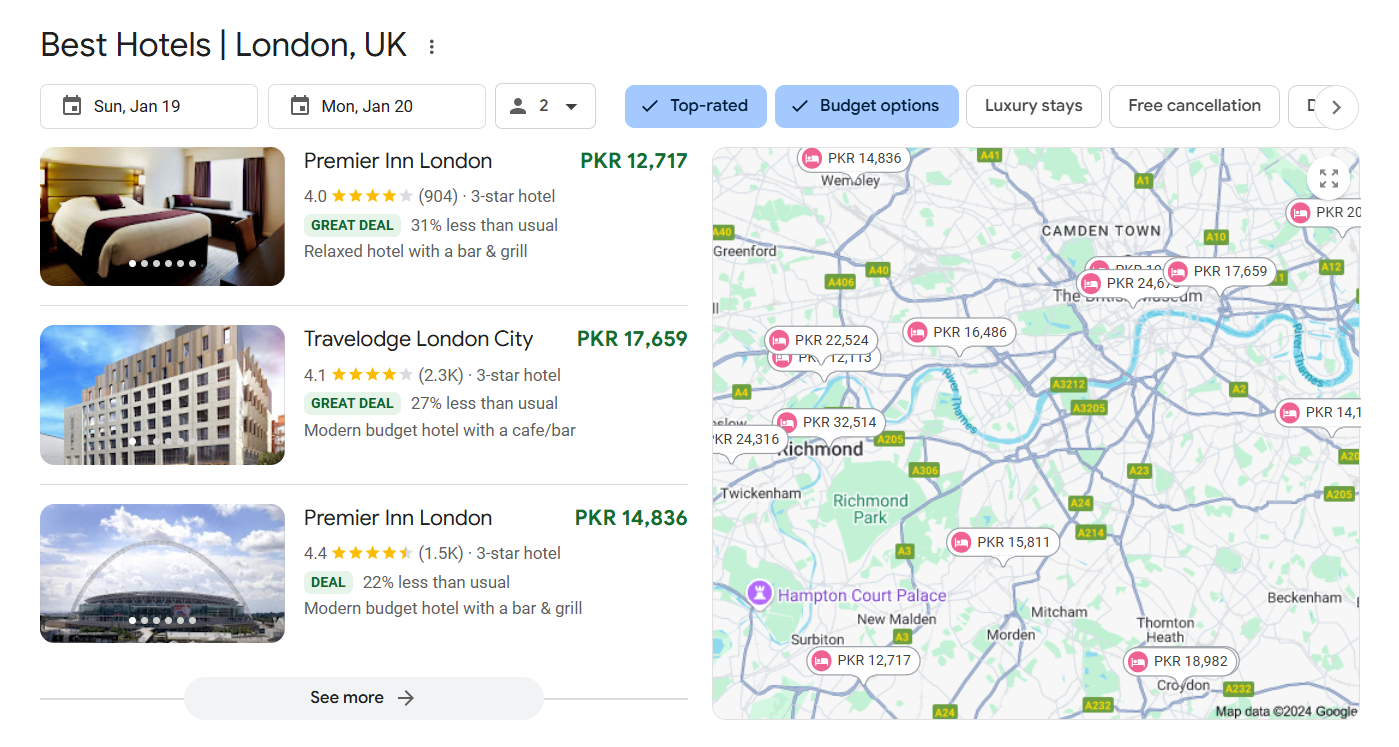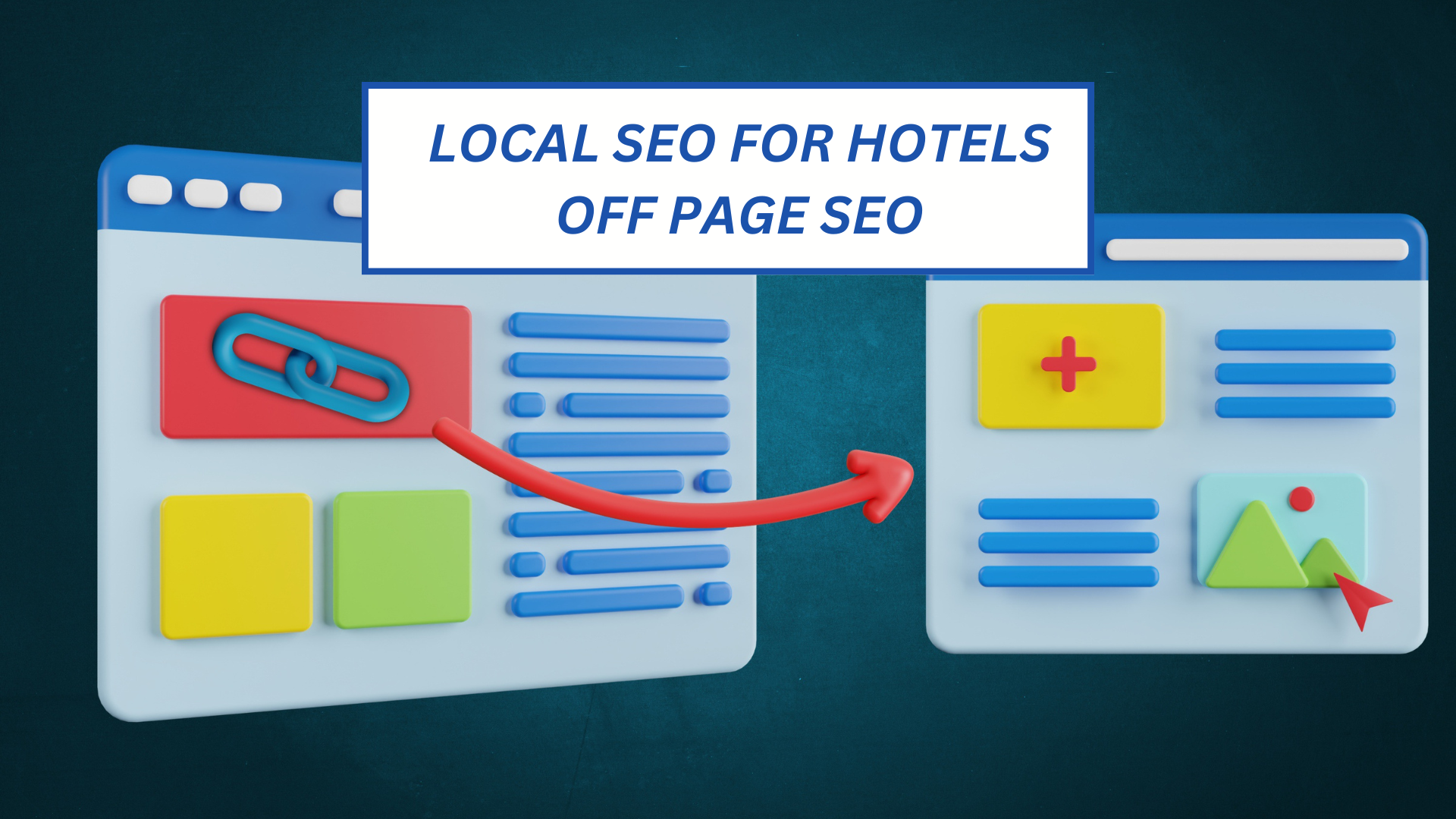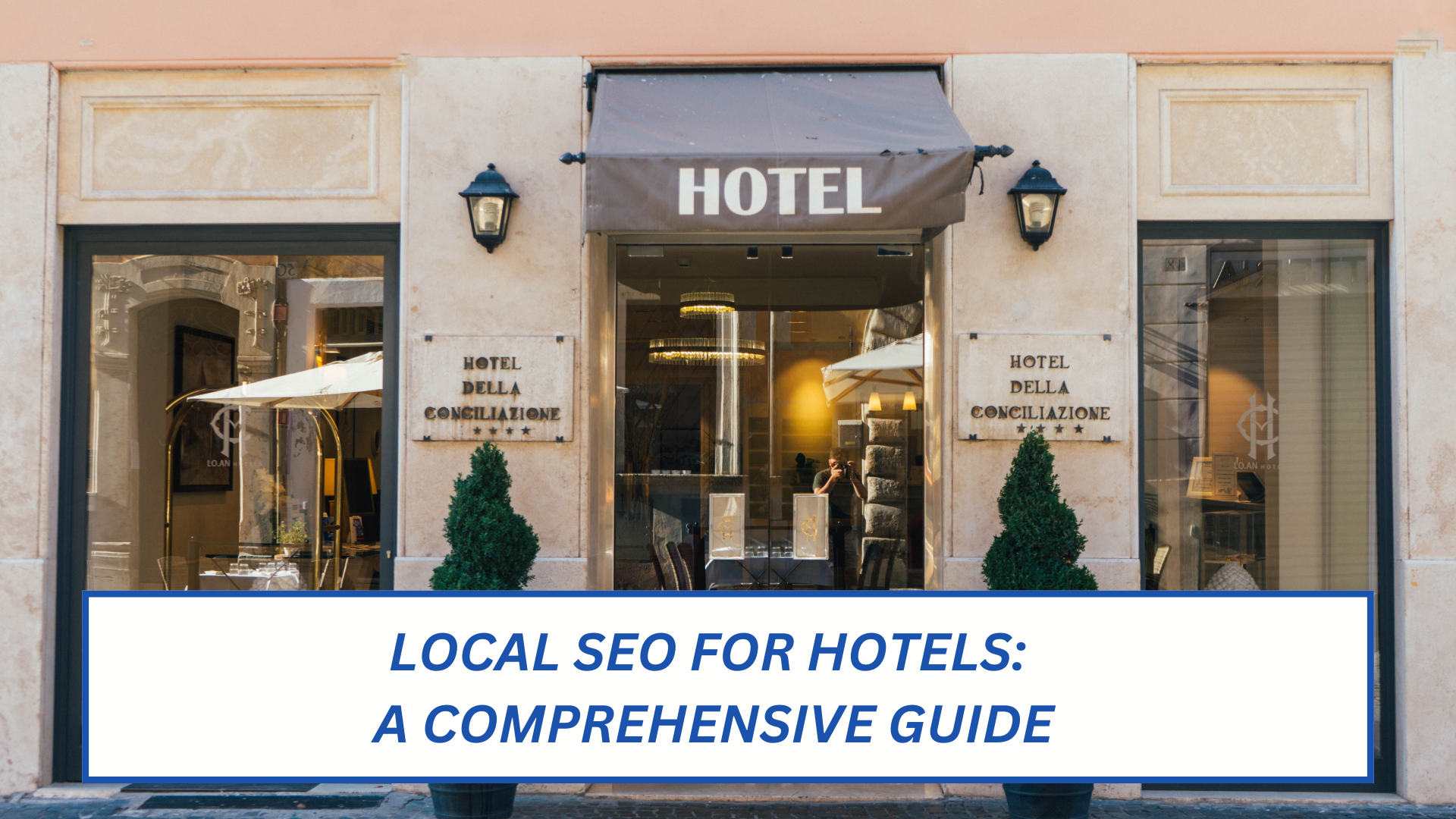Effective local SEO provides business owners a smooth pathway to attract potential customers without having to invest a lot, unlink paid ads. The only challenge is developing a customized strategy that fits your business and works for you long-term, especially if you’re operating in a competitive industry like hospitality. In this guide, we’ll talk about local SEO for hotels and what it takes to rank your business assets on Google and other search engines like Bing and YouTube. Ready to learn how to create a consistent stream of customers with SEO? Let’s dive in.
What is Local SEO for Hotels?
It’s when you implement marketing best practices to your digital assets such as website and Google Business Profile to get more visibility on search engines. As a hotel service provider, you want to rank for key phrases (Or search queries) like “Best hotels in [City name]”, “Best hotels near me”, etc.
To get ranked on Google Map Pack (The three businesses that appear at the top), you’ll need to make sure your Google Business Profile is optimized for the right keywords. This eventually leads to more foot traffic to your hotel’s physical location.
Why Local SEO is Important for Hotels?
Most people use online research to find the right hotels for their needs and preferences. For instance, some may be searching for “Best affordable hotels in [City name]”. Once you know your target keywords, the only way to attract these leads to your marketing funnel and convert them into customers is through an effective SEO strategy.
You May Also Like: The Relationships Between Social Media and Local SEO
Local SEO for Hotels: Key Components
Let’s talk about the key components of local SEO for hotels and how you can rank your hoteling business on top of Google.
Google Business Profile (GBP)
An optimized GBP is crucial if you want to get your name in the top three business results, also known as Google Map Pack. Here’s what it looks like:

How do you do it? Start by including all the details of your business in your GBP. A complete GBP profile has more chances to rank than an incomplete profile. Plus, make sure your business information, especially the NAP (Name, Address, Phone Number) is consistent across all online platforms. Consistency in your information demonstrates your business’s credibility, potentially leading to better rankings.
Local Keywords
Finding the keywords that closely relate to your business is a crucial part of every SEO strategy. As a hotel, you want to find keywords that may lead people to get on a call or request a visit. For instance, “Best affordable hotels in [City name]” indicates that someone is looking for a hotel in their vicinity on a budget.
You May Also Like: Local SEO for Restaurants (Get More Customers Organically)
Website SEO
This involves creating and optimizing your website’s homepage and most important pages. Once you have the keywords you want to rank for, it’s time to create content around those keywords so that Google can rank you accordingly. Website SEO essentially has three parts:
Technical SEO
This involves making sure your search engine bots can easily access, crawl, and index your website. It essentially covers everything that makes your web pages technically sound. For instance, installing an SSL to ensure security is one of its aspects. Others include creating a sitemap to help search engines crawl all parts of your site easily.
On-Page SEO
This is when you optimize a web page for a specific group of keywords. These practices apply to every web page, including the homepage, service pages, and blog posts. Important on-page SEO factors include:
- Keyword Optimization
- Title Tags and Meta Descriptions
- Header Tags (H1, H2, H3)
- Mobile Responsiveness
- Page Load Speed
- High-Quality Content
- Location Pages
- Internal Linking
- Image Optimization
- Schema Markup
- Call-to-Actions (CTAs)
- Local Keywords in URLs
Off-Page SEO

This includes the actions you perform off your site to make it more visible on search engines. Backlinks are the core part of off-page SEO. These are links that point to your site from other sites, building its authority, and in turn, rankings. You can build backlinks to your hotel website in a variety of ways, including:
- Collaborate with local tourism boards
- List on hotel directories
- Partner with travel bloggers
- Sponsor local events
- Offer discounts to local businesses
- Publish guest posts
- Create useful resources
- Leverage social media profiles
- Engage in local sponsorships
- Feature in news articles
You May Also Like: How to Use Reddit for SEO (Complete Guide)
Online Reviews and Reputation Management
Reviews play a crucial part in building your reputation as a service provider. People look at online reviews before even considering doing business with you and Google wants to showcase the best options to its users. Try to get as many positive reviews on your GBP profile as possible. And, always respond to reviews, especially the negative ones, and try your best to solve customer issues.
Mobile Optimization
Research suggests that 58% of people use their smartphones to search for local businesses daily. It’s fair to presume that most of your target customers are using mobile phones to find hotel services in their area. And that’s why mobile-optimized websites are more likely to rank higher on Google than unoptimized ones.
Local SEO for Hotels: FAQs
Let’s address some frequently asked questions about local SEO for hotels.
What is Local SEO in the Hoteling Industry?
Local SEO in the hotel industry is all about making your hotel services appear higher on Google search results, whether through your Google Business Profile or website.
Why is Local SEO Important for Hotels?
With effective local SEO for hotel business, you can attract high-quality search engine leads without having to invest constantly, unlike paid ads.
Is Local SEO Profitable?
Absolutely. Local SEO requires initial effort. Once your business gets ranked on Google’s first page, it’s essentially a game of maintaining your rankings.
Conclusion
Hotel owners need to realize that initial investment in local SEO is crucial to long-term online visibility. It does take some time to show results, but once your business gets ranked, maintaining those rankings isn’t tricky. A local SEO strategy for a hospitality business involves finding popular keywords people are searching for on Google and optimizing your digital assets, such as GBP and website, for those keywords. And, since SEO is constantly evolving, you need to stay ahead of trends and make sure your website follows the latest best practices for sustainable organic rankings.




